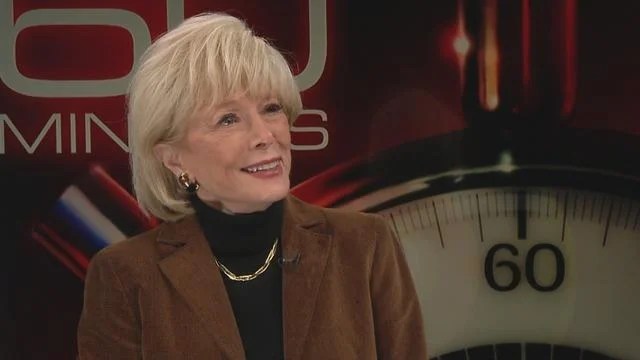The world of journalism is ever-evolving, and one of its most esteemed platforms is the television program "60 Minutes." This investigative journalism show has been a staple of American broadcasting since its inception in 1968. With a reputation for rigor and integrity, "60 Minutes" has produced some of the most impactful reports in media history. In this article, we will explore the lives and careers of the reporters who have contributed to this iconic show, revealing their stories, challenges, and significant contributions to journalism.
Through this exploration, we'll delve into the principles of investigative journalism, the importance of credibility, and the role of these reporters in shaping public perception. The keyword "60 Minutes reporters" will guide our discussion, bringing to light the remarkable individuals behind the stories that have captivated audiences for decades. As we navigate this journey, we will also provide insights into how these journalists maintain their authority and trustworthiness in a field that demands both expertise and ethical standards.
Join us as we unpack the legacy of "60 Minutes" and the reporters who have dedicated their careers to uncovering the truth, holding power accountable, and informing the public in meaningful ways. From high-profile interviews to in-depth investigations, each segment contributes to the rich tapestry of journalism that "60 Minutes" has woven over the years.
Table of Contents
- History of 60 Minutes
- Notable Reporters
- Investigative Techniques
- Impact on Society
- Current Reporters
- Future of Journalism
- Key Takeaways
- Conclusion
History of 60 Minutes
"60 Minutes" debuted on September 24, 1968, created by Don Hewitt. It was the first television news magazine format, blending investigative reporting with human interest stories. The show's unique style—marked by its iconic ticking clock and the famous "60 Minutes" logo—set a standard for television journalism.
Throughout the years, "60 Minutes" has received numerous awards, including multiple Peabody and Emmy Awards, establishing itself as a trustworthy source of news. The show's format allows for in-depth storytelling, giving reporters the opportunity to explore complex issues thoroughly.
Notable Reporters
Over the decades, "60 Minutes" has featured numerous renowned reporters whose work has defined the program. Some of the most notable include:
- Mike Wallace: A founding correspondent, Wallace was known for his aggressive interviewing style and in-depth investigations.
- Morley Safer: Safer's storytelling ability and empathy made him a beloved figure in journalism.
- Lesley Stahl: A long-time correspondent, Stahl has covered significant events and interviews with world leaders.
- Anderson Cooper: Cooper brought a new generation of viewers to "60 Minutes" with his engaging reporting style.
Biographical Overview of Notable Reporters
| Name | Role | Years Active | Notable Contributions |
|---|---|---|---|
| Mike Wallace | Correspondent | 1968-2006 | Investigative interviews, political commentary |
| Morley Safer | Correspondent | 1970-2016 | Human interest stories, cultural commentary |
| Lesley Stahl | Correspondent | 1991-present | Interviews with world leaders, investigative reporting |
| Anderson Cooper | Correspondent | 2006-present | Engaging storytelling, coverage of major events |
Investigative Techniques
The success of "60 Minutes" can be attributed to the rigorous investigative techniques employed by its reporters. Some key methods include:
- Research: Thorough background research is essential for understanding the context of a story.
- Interviews: Conducting interviews with various stakeholders provides multiple perspectives.
- Document Analysis: Analyzing documents can uncover vital information that may not be readily available.
- Data Journalism: Utilizing data to support claims enhances the credibility of reports.
Impact on Society
"60 Minutes" has profoundly impacted society through its investigative reporting. It has:
- Exposed Corruption: Many segments have revealed corruption in government and corporations, leading to policy changes.
- Informed the Public: The show educates viewers on critical issues, fostering a more informed citizenry.
- Stimulated Dialogue: By addressing controversial topics, "60 Minutes" encourages public discourse.
Current Reporters
As of today, "60 Minutes" continues to feature a talented roster of reporters, including:
- Scott Pelley: Known for his in-depth reporting and interviews.
- Bill Whitaker: A seasoned journalist with a strong focus on social issues.
- Sharyn Alfonsi: Recognized for her impactful storytelling and investigative work.
Future of Journalism
The landscape of journalism is rapidly changing, influenced by technology and audience consumption habits. "60 Minutes" has adapted to these changes by embracing digital platforms and engaging younger audiences through social media. The future of the show will likely involve:
- Increased Use of Multimedia: Incorporating video, graphics, and interactive content to enhance storytelling.
- Focus on Digital Content: Expanding online presence and offering exclusive digital reports.
- Engaging Younger Audiences: Utilizing platforms like YouTube and TikTok to reach a broader demographic.
Key Takeaways
The journey of "60 Minutes" and its reporters highlights the importance of integrity and dedication in journalism. Here are some key takeaways:
- Investigative journalism is crucial for a healthy democracy.
- Adapting to technological changes is essential for survival in the media landscape.
- The role of reporters goes beyond storytelling; they are watchdogs of society.
Conclusion
In conclusion, the "60 Minutes reporters" have played a pivotal role in shaping modern journalism through their dedication to uncovering the truth. Their commitment to excellence, integrity, and the public interest continues to inspire new generations of journalists. We encourage you to engage with this content by leaving comments, sharing your thoughts, and exploring more articles on our site.
Thank you for taking the time to learn about the remarkable reporters of "60 Minutes." We hope to see you again soon for more insightful discussions on journalism and its impact on society.
You Might Also Like
Carly Pearce Boyfriend: Who Is She Dating In 2023?Could Trump Be The Antichrist? An In-Depth Analysis Of Prophecies, Beliefs, And Political Implications
Ultimate Guide To Hair Twists: Techniques, Styles, And Care Tips For Stunning Twists
Is Chuck Norris Dead? The Truth Behind The Myths And His Enduring Legacy
David Bromstad: The Journey Of A Design Icon And Television Personality
Article Recommendations


